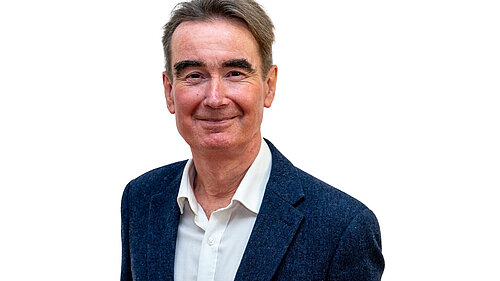From the Leader: Time for a better form of politics

What kind of politics do you want?
This week, influenced in part by the recent Winnersh by-election, I want to return to a topic that I have raised before – the way in which politics is conducted.
Unfortunately, both locally and nationally, politics has recently become much more toxic than it used to be.
When I was first elected to Wokingham Borough Council (or Wokingham District Council, as it was then), local politics was much less abrasive, aggressive, and – I have to say it – dishonest than it is now. Councillors argued their case forcefully, but respectfully. Friendships across the political divide were common. All parties, and all councillors, felt a moral obligation to be truthful.
The politics of honesty, truth, and mutual respect feels increasingly beleaguered.
Recent political developments in the United States have no doubt been influential. Divisive culture wars and the use of the vilification and demonization of opponents are the modus operandi of the new regime in Washington. It has not scrupled, for political purposes, to present a version of events completely at odds with verifiable reality.
But the roots of this decline in the quality of our politics goes back further. The Brexit debate in Britain was bitterly divisive and unleashed a much less tolerant form of political discourse. The discredited Johnson administration raised dishonesty into an art form.
Social media, though a force for good in many respects, has also played a part. Abuse of individuals and groups is much easier from behind a keyboard than in face-to-face conversation. The inhibitions we usually feel about offending people can easily disappear when given the opportunity unreflectively to vent anger or frustration with seeming impunity.
It does not have to be like this. It should be possible to disagree without becoming sworn enemies, to present an argument without indulging in personal abuse, and – perhaps most fundamental of all – to be honest about the challenges we face and tell the truth, however unpopular that may be.
Dishonesty may bring short-term political gain, but sooner or later it will lead to disillusionment amongst voters. Abuse of opponents may enthuse a small hard core of the party faithful, but it puts off many ordinary people from participating in elections. It also makes it more difficult to persuade good, decent, public-spirited people to put themselves forward for office. No one should be exposed to the kind of personal attack that I have seen levelled at local councillors doing their best to serve their community.
I am, I readily admit, someone who strives to create consensus, to bring people together rather than drive them apart. Perhaps that is why I find the recent decline in political standards deeply troubling. It jars badly with my ideal of good local government as honest, open, evidence-based and rational decision making.
But even if you are a more combative politician than I am, who revels in the rough and tumble of party conflict, it should be possible to exercise restraint. We can all be bound by what are generally recognized as civilized modes of behaviour, such as treating others as we would wish to be treated ourselves. And in our public duties, and our election campaigns, we can all avoid deliberate and wilful dishonesty.
Cllr Stephen Conway is Leader of the Council and member for Twyford, Ruscombe and Hurst
